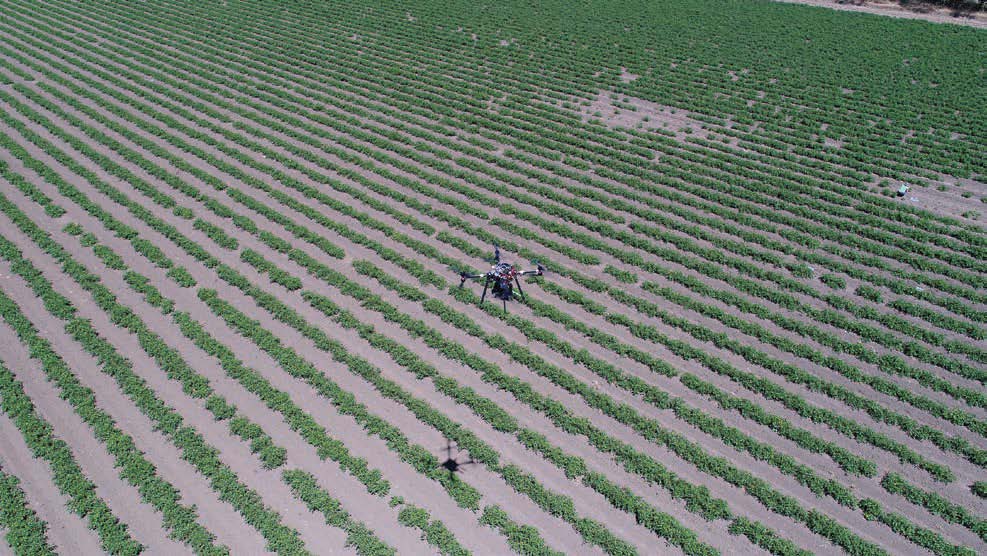Agriculture technology
We are developing new technologies and precision agriculture to boost agricultural production and reduce its environmental footprint to advance farm productivity needed to achieve food security for a global population expected to increase from 7.6 billion to 9.8 billion by 2050.
Our strength comes from working in highly cross-disciplinary teams across the university to develop leading technologies that will underpin the future of precision agriculture including:
- Highly efficient water control systems
- Remote monitoring and surveillance systems
- Improved weather and crop forecasting systems.
We have a unique research skill set that combines high-resolution remote sensing of plant and water status, with control systems for water in agriculture and an understanding of the interplay between water, nutrients and soils. This provides a strong foundation for incorporating engineering technologies with the agronomic aspects of managing plant production in agriculture.
As part of this, the University drives innovation in drone-based sensing via the Melbourne Unmanned Aircraft Systems Integration Platform (MUASIP).

Capabilities
- Very-high-resolution mapping of plant vigour, water stress and diseases
- Satellite remote sensing of soil moisture and plant water use
- Crop and plant-specific multispectral and thermal infrared sensor development
- Model and observation integration for optimal real-time prediction of water and vegetation
- Seasonal forecasting of soil water and crop yield
- Smart irrigation system development guided by meteorological and soil water information from satellites
Theme leader
Associate Professor Dongryeol Ryu
Remote sensing of water and vegetation, microwave remote sensing of soil moisture, hydrologic data assimilation, land surface processes modelling.
Case studies
- Irrigation network automation improves efficiency and water productivity, Professor Michael Cantoni
- Remote drone surveillance maps horticulture crop health, Associate Professor Dongryeol Ryu
- Thoughtful design engineers early success for new machinery, Dr Colin Burvill and Professor Chris Manzie